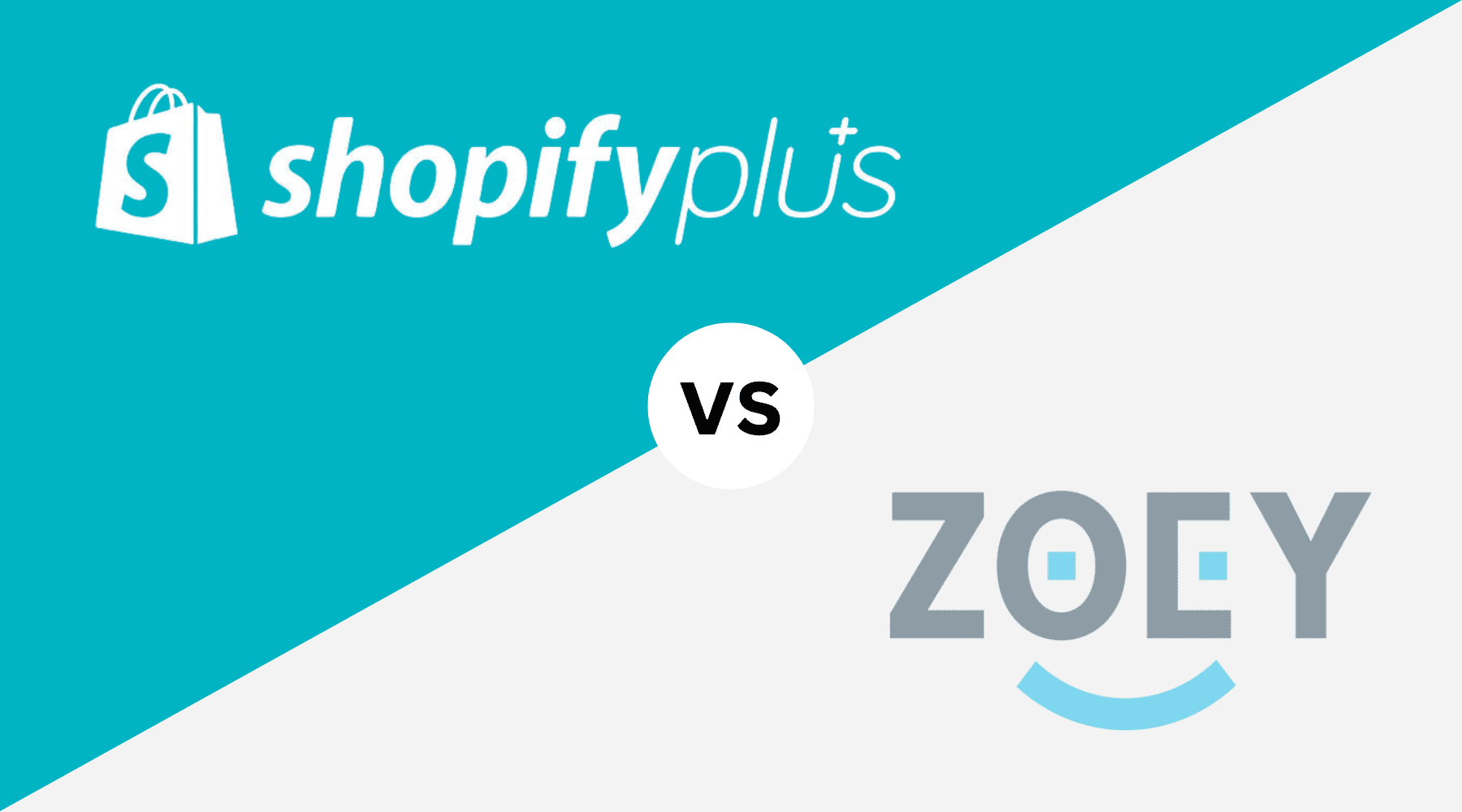Choosing the right e-commerce platform is not an easy step. Especially if you don't want your growth to be slowed down by technical limitations. Many shops quickly reach their limits with standard solutions: limited scalability, a lack of customization options, and slow integrations cost performance and sales.
Brands with ambitions need more than a modular system. They need a platform that combines technical depth, customizability, and speed. This is where the comparison between Zoey and Shopify Plus begins: two systems with clearly different approaches and target groups.
In this article, you'll discover how both platforms compare in terms of technology, strategy, and growth potential.
Zoey vs Shopify Plus: Platform Philosophy & Ecosystem
Zoey is aimed at retailers who want to digitalize business processes efficiently. The platform directly maps typical B2B processes, making implementation easier. Those who prefer simple structures will find a stable framework with clearly defined functions here.
Plus takes a more flexible approach. Instead of providing fixed structures, the platform provides a technical foundation that can be customized and expanded. It adapts to the business model, not the other way around. This encourages new ideas and enables existing systems to be seamlessly integrated.
One system remains tied to a narrow set of B2B requirements, while the other offers significantly more architectural freedom. If you want to grow, you need room to maneuver, and it is precisely this difference that companies are already noticing when planning their next stage of development.
Comparison of the Main Features: 9 Differences
|
Feature |
Shopify Plus |
Zoey |
|
Scalability |
Designed for rapid growth |
Limited when dealing with complex demands |
|
API Access |
Full access with open architecture |
Restricted, mostly predefined endpoints |
|
Multi-Channel Commerce |
Native support for social, marketplaces, retail |
Focused on standard web store |
|
App Ecosystem |
Broad network of integrations and tools |
Smaller selection, limited extensions |
|
B2B Capabilities |
Customizable through development |
Built-in, but not highly flexible |
|
Hosting & Performance |
Global CDN with high availability |
Stable infrastructure, less scalable |
|
Frontend Flexibility |
Headless ready, full UI control |
Template-based, limited design freedom |
|
Internationalization |
Multi-language, multi-currency, global logic |
Basic setup, less extensible |
|
Security & Compliance |
Certified, role-based access control |
Standard B2B compliance features |
Where Shopify Plus Wins: Customization, Ecosystem & Speed
Shopify is aimed at companies that not only want to sell with their platform, but also actively organize it. Instead of being limited to standard functions, the system allows in-depth control of all commerce processes.
Technical decisions can be made independently because the system is designed to be consistently open. This openness is particularly evident in the implementation of individual features that are not included in the core.
Development teams benefit from a clear separation between presentation and logic. This allows complex processes to be structured and scaled in a targeted manner.
The connection to external systems is also straightforward, as APIs are clearly documented and stably available. In a growing setup, this not only saves time, but also ensures performance.
At the same time, the entire environment grows with it. New tools can be integrated quickly, while existing systems are retained. The platform remains fast, stable, and low-maintenance.
This provides operational security and creates space for focused further development. Brands that not only operate e-commerce but also want to differentiate themselves will find the technical foundation for sustainable growth here.

Zoey's Niche: Built-in B2B Features & Easy Access
Zoey is aimed at companies that want to efficiently map classic B2B requirements. The platform offers many business customer-specific functions out of the box. Anyone working with fixed price lists, customer approvals, or structured order processes will find a solution here that is ready for use without any additional development effort.
Smaller teams in particular benefit from the quick start. The user interface is clearly structured, and many typical B2B use cases can be configured with just a few clicks. This significantly reduces the effort required for project planning and technical implementation. At the same time, flexibility remains limited as soon as requirements go beyond the standard system.
The platform offers a solid foundation for retailers who work with established processes and have little need for change. However, anyone planning to actively develop their processes or the user experience will come up against technical limits.
The easy start comes at the expense of long-term scalability. The platform shows its strengths in stable, clearly defined environments. However, it lacks the necessary openness for ambitious growth targets.
Use Cases & Decision Criteria
Not every brand needs maximum flexibility. If your business runs on fixed workflows and targets a defined segment, a solution that works out of the box might be the right fit. In such cases, a platform that requires minimal configuration and handles routine tasks reliably can be highly effective. Especially for straightforward B2B models with low integration demands, simplicity becomes an advantage.
The picture changes when growth, personalization, or new markets come into play. Shopify Plus responds to these challenges with a system that adapts to complex operations. Checkout flows, user interfaces, and system integrations can be aligned with your exact business logic. This creates a clear edge for companies that refuse to compromise on scalability and performance.
From a financial perspective, the numbers also matter. Plus typically starts at around 2,300 USD per month. Compared to building custom infrastructure from scratch, it reduces development cycles, operational complexity, and long-term costs. With a proper setup, the platform can grow with your business, without requiring a complete rebuild later on.
When planning for long-term success, technical decisions need clear direction. That’s where Shopify Plus Consulting becomes critical. With Datora as your strategic partner, you can define and implement solutions that align with your goals, your brand, and your internal setup.

Conclusion: The Right Choice Depends on Your Ambition
Platforms do not determine success, but they do determine how far you can develop technically. If your business model is based on scaling, customization, and speed, you need a solution that can support this dynamic. Shopify fulfills exactly this requirement.
With the right strategy and a strong implementation partner, you can realize your full potential. As an experienced Shopify Plus Development Agency, we create technical solutions that are precisely tailored to your brand.
You don't get a standard integration, but a system that supports your goals and accelerates your growth. Let's build your custom experience with Datora.
Want to dive deeper into other options?
These comparisons might also interest you:








